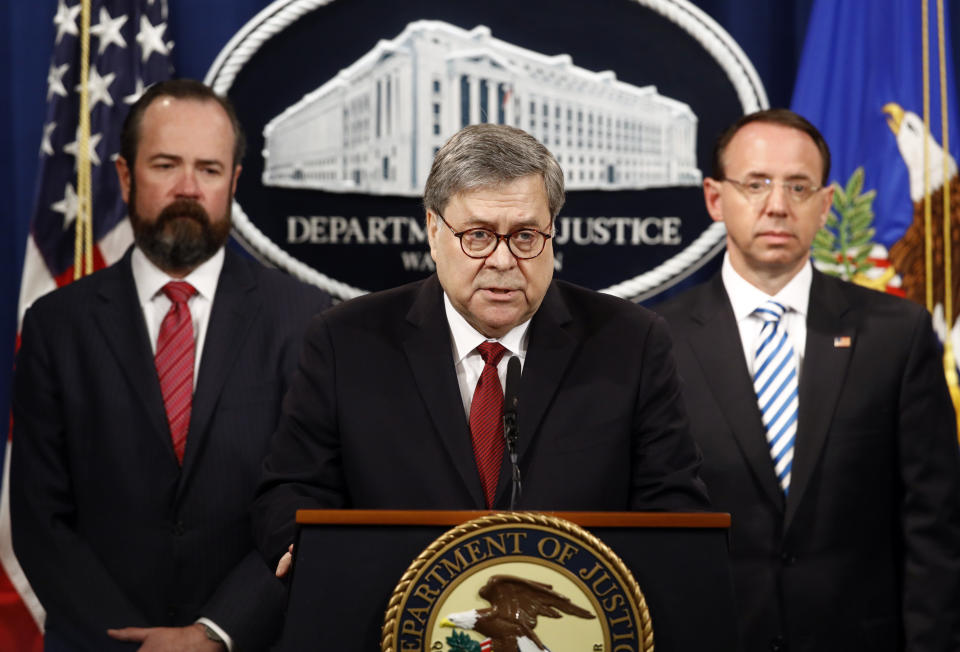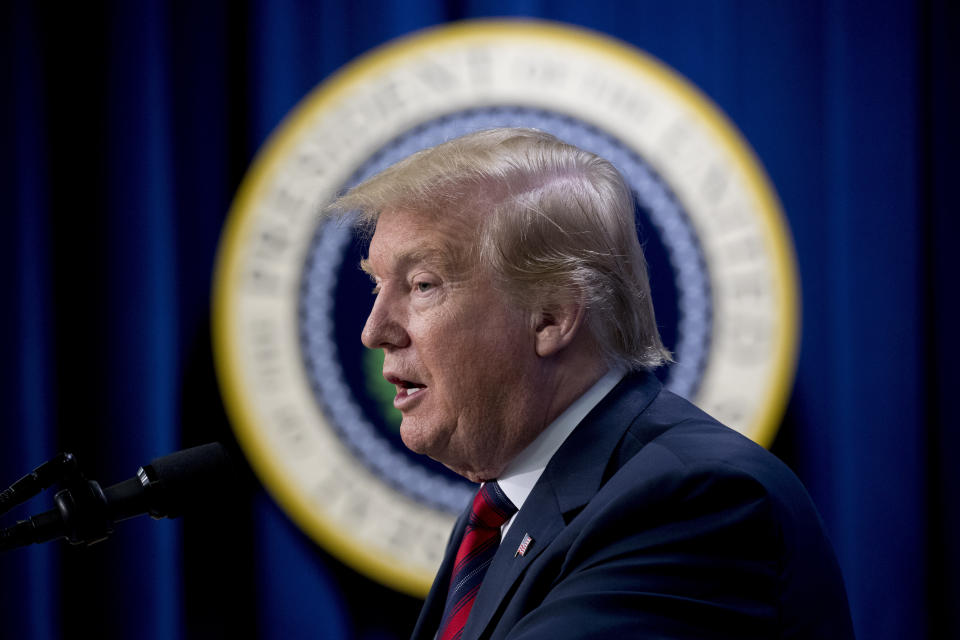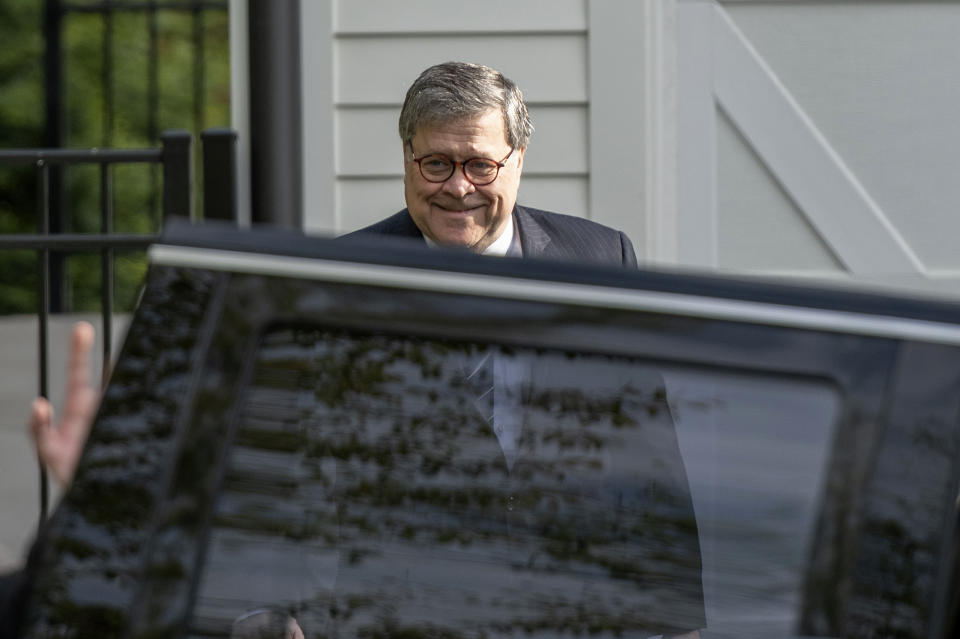Robert Mueller's report released to the public as Barr defends Trump on obstruction
President Donald Trump did not conspire with Russia’s attempts to influence the 2016 election, and ten documented instances in which the president involved himself in the ongoing probe were not conclusive enough to establish obstruction of justice charges, according to the final report of a nearly two year investigation.
After a delay, special counsel Robert Mueller’s probe into Russia’s suspected interference in the 2016 elections was finally made public on Thursday.
The heavily redacted, 448 page document— already a top seller on Amazon— details Russia’s efforts to sway the general election, which Mueller determined definitively were not assisted by anyone on Trump’s campaign, or the candidate himself.

A source of ongoing controversy, however, is whether Trump moved to block or sway the investigation once he ascended to the Oval Office.
Based upon the evidence obtained by the probe, Trump’s conduct presented Mueller’s team with “difficult issues that would need to be resolved if we were making a traditional prosecutorial judgement,” Mueller’s final report read.
“While this report does not conclude that the president committed a crime, it also does not exonerate him,” the special counsel concluded.
Ahead of the release, Barr mounted a vigorous defense of the report’s findings, and the decision not to indict a sitting president. He convened a press conference at the Justice Department to discuss the release of a probe that’s overshadowed Trump’s presidency since its inception.
Flanked by Deputy Attorney General Rod Rosenstein and another Justice official, Barr said the special counsel recounted 10 instances involving the president, in which Mueller evaluated whether Trump potentially interfered with the investigation.
Barr stated that the special counsel “did not make a traditional prosecutorial judgment” about whether Trump obstructed justice, but did recount the instances where the president involved himself in the investigation—and whether it was tantamount to an offense.
Based on Mueller’s finding, and after review with other top officials, the Justice Department determined that “evidence developed is not sufficient to establish the president committed an obstruction of justice offense,” Barr stated.
“Although the deputy attorney general and I disagreed with some of the Special Counsel's legal theories and felt that some of the episodes examined did not amount to obstruction as a matter of law, we did not rely solely on that in making our decision,” Barr added.
Firestorm over edited report
Mueller’s final report definitively stated that there was no evidence of collusion between Russia and the Trump campaign. But the special counsel did not recommend a course of action about whether Trump tried to block or influence the probe.
“After nearly 2 years of investigations, thousands of subpoenas...the special counsel ...did not find that the Trump campaign or any other Americans colluded” with Russia’s attempts to influence the general election, Barr told reporters.
Rather, Mueller’s final report showed that Trump was “frustrated and angered by a sincere belief that the investigation was undermining his presidency, propelled by his political opponents, and fueled by illegal leaks,” according to Barr.
He added that the “non-corrupt motives” undercut the suggestion that the president acted with malice, or corrupt intent to block the probe.
Parts of the special counsel’s lengthy report — an exhaustive probe that began at the outset of Trump taking office and cost millions of dollars — are heavily redacted to protect intelligence assets and grand jury deliberations, among other things.
That particular aspect has opened a new, politically charged front between the Trump administration and Congress, where members are insisting on obtaining a version of the report that isn’t blacked out.
The Attorney General did acknowledge that a copy of Mueller’s findings were made available in advance to the president’s legal team, and that the White House was given an early copy of the report.
Amid a brewing firestorm over the redacted report, Barr said that a special version of the report would be made available to a bipartisan group of members of Congress. That version will be largely unredacted — with the exception of grand jury deliberations, which by law must remain safeguarded, Barr stated.
A summary of Mueller’s findings, assembled with the assistance of dozens of investigators and 19 lawyers, was provided to the Attorney General last month.
Trump lashes out

Ahead of the report’s release, the president lashed out at the investigation once again. Calling the probe “presidential harassment,” Trump once again blasted the affair as a “political hoax” designed to discredit his presidency.
The Greatest Political Hoax of all time! Crimes were committed by Crooked, Dirty Cops and DNC/The Democrats.
— Donald J. Trump (@realDonaldTrump) April 18, 2019
Barr’s initial review of the Mueller report stated that there was no evidence of collusion between Trump’s presidential campaign and Russian elements trying to influence the election.
The Attorney General’s summary, released last month, was quickly interpreted by Trump and his surrogates as evidence that the probe exonerated him.
However, Mueller largely demurred on the question of whether Trump had obstructed justice by trying to influence the probe’s outcome—something the president has steadfastly and repeatedly denied.

The missing elements of the Mueller report have prompted Congressional Democrats to push back on Barr’s insistence on secrecy. New York Democrat Jerrold Nadler has threatened to subpoena the administration for a complete version of the report, while the White House has reportedly prepared a 140-page rebuttal.
For his part, the nation’s chief law enforcement officer has said the redactions were necessary to protect grand jury deliberations, sensitive intelligence-gathering information, and ongoing probes into the conduct of people linked to the controversy.
Mueller’s probe resulted in the downfall of a few people close to Trump — including his former personal lawyer, Michael Cohen, and ex-campaign manager Paul Manafort.
Javier David is an editor for Yahoo Finance.
Read more:
Follow Javier on Twitter: @TeflonGeek

